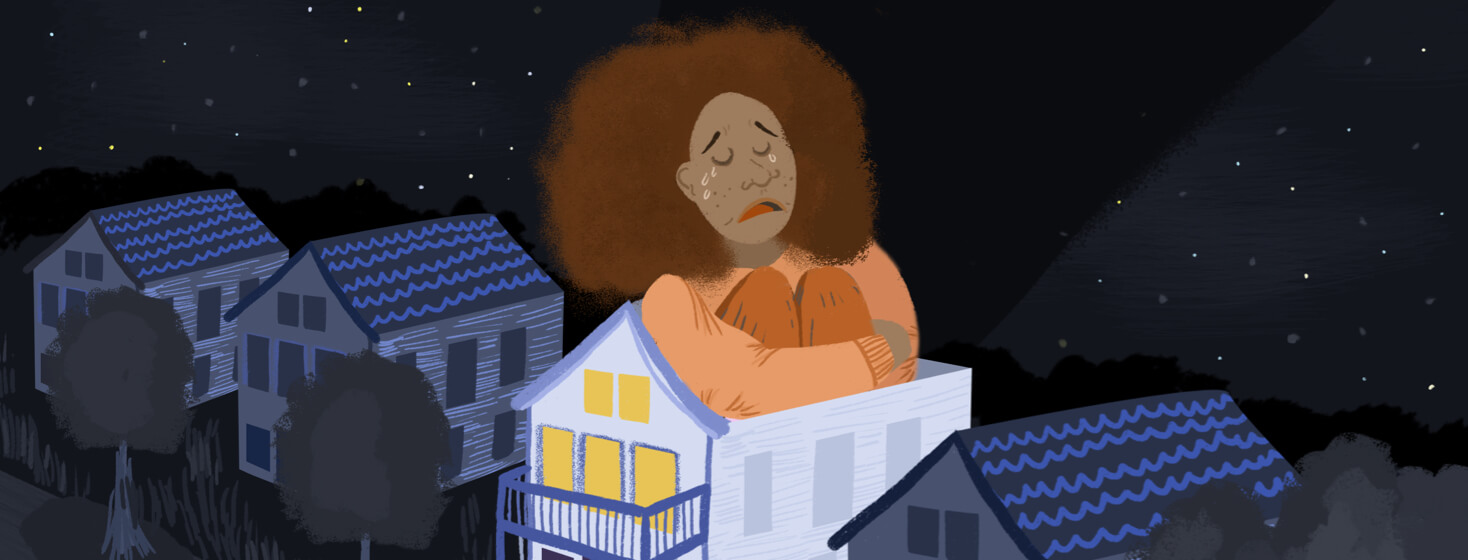What is a Mental Health Emergency?
Mental health emergencies can look different for different people. They all can put you at risk of losing your life, getting into legal trouble, losing family, or having a serious change in life as you know it. In these cases, you need immediate medical attention, which means going to the emergency room (ER) or calling 911.
Types of mental health emergencies
Mental health emergencies are life-threatening. There are several common types of mental health emergencies, all of which require medical help. Please note that these are not all the symptoms. If you are worried about your safety or someone else’s safety you should seek help:1-6
- Having suicidal thoughts is when you are thinking about ending your life. You may or may not have a plan, but having thoughts alone is serious. You may start giving away your things or saying goodbye to people. You may also have a history of hurting yourself on purpose or attempting suicide in the past.
- Depression is a low mood state. You may feel sad, uninterested, empty, hopeless, tired, or worthless. You may have changes in appetite, sleep, or concentration. Sometimes, depression is severe enough that it stops you from doing your usual activities, such as:
- Bathing
- Working
- Eating
- Going to school
- Mania is when you have specific changes in behavior or mood that affect daily function. You will have a decrease in sleep or may not sleep at all for days. You also may make risky decisions without thinking about them. You may have racing thoughts or increased:
- Energy
- Agitation
- Self-confidence
- Psychosis is when you lose touch with reality. You may start having hallucinations: seeing, hearing, feeling, or smelling things that are not actually there. You may not be able to tell what is real and what is not. You may feel:
- Paranoid
- Distrustful
- Fearful
- Substance use disorder is when you use drugs so much that it affects your life in serious ways. You may spend all your money or do risky things to get drugs. Suddenly stopping drug use can also be dangerous and life threatening.
- You may be a risk to others in some cases. Being a risk to others may involve thinking about harming or killing someone else. It can also look like:
- Destroying things
- Hurting animals
- Starting fires
What do I do if I am having a mental health emergency?
If you or someone you know is showing any of the symptoms listed above, there are things you can do:4-6
- Ask for help.
- Call someone you trust.
- Take some deep breaths while you wait. This can help.
- If you can, try to remove harmful items (such as knives, guns, or razors) from a room or go to a safe place where there are no items that make it easy to harm yourself.
- If it is you having the symptoms, you can call 911 or go to the ER.
- If it is a loved one having the symptoms, listen to them, be patient, and support them in getting immediate help. Be there when they need you during the process. You can offer to call 911 or bring them to the ER. Be sure to check on them after they get help.
What happens after I go to the ER?
You may feel overwhelmed even after you get to an ER. A doctor will ask you a lot of personal questions about you, your feelings, and your life experiences. They will help you with the next steps for your mental health treatment.
The next steps will depend on your individual needs. You may qualify for a hospital stay (long term or short term), be referred to a treatment facility, or may be scheduled for outpatient management. Outpatient management means you live at home but go to appointments. Some programs require you to go to appointments daily. Other programs will have you come in weekly.
It may take a long time to process and heal from your mental health emergency. But this is to be expected and not a bad sign.
Resources for you and your mental health
Remember that there are resources for you and that there are people who support you and can help you:
- Call 911
- Suicide Prevention Lifeline:
- Call: 1-800-273-8255
- Chat: https://suicidepreventionlifeline.org/chat/
- Crisis Text Line: text "HELLO" to 741741
- NAMI (National Alliance on Mental Illness):
- HelpLine Call: 1-800-950-6264
- Crisis Text Line: Text "NAMI" to 741741
- Call: 1-800-273-8255 and press 1
- Chat: https://www.veteranscrisisline.net/get-help-now/chat/
- Text: text 838255

Join the conversation